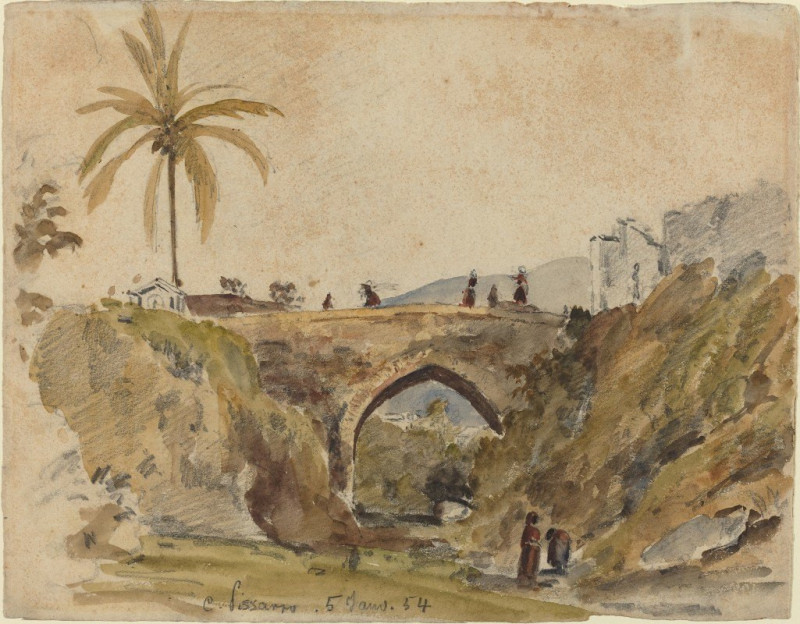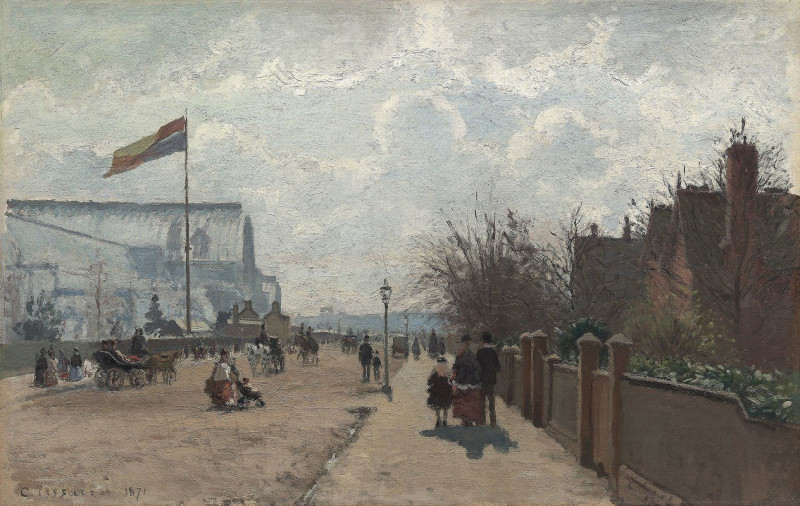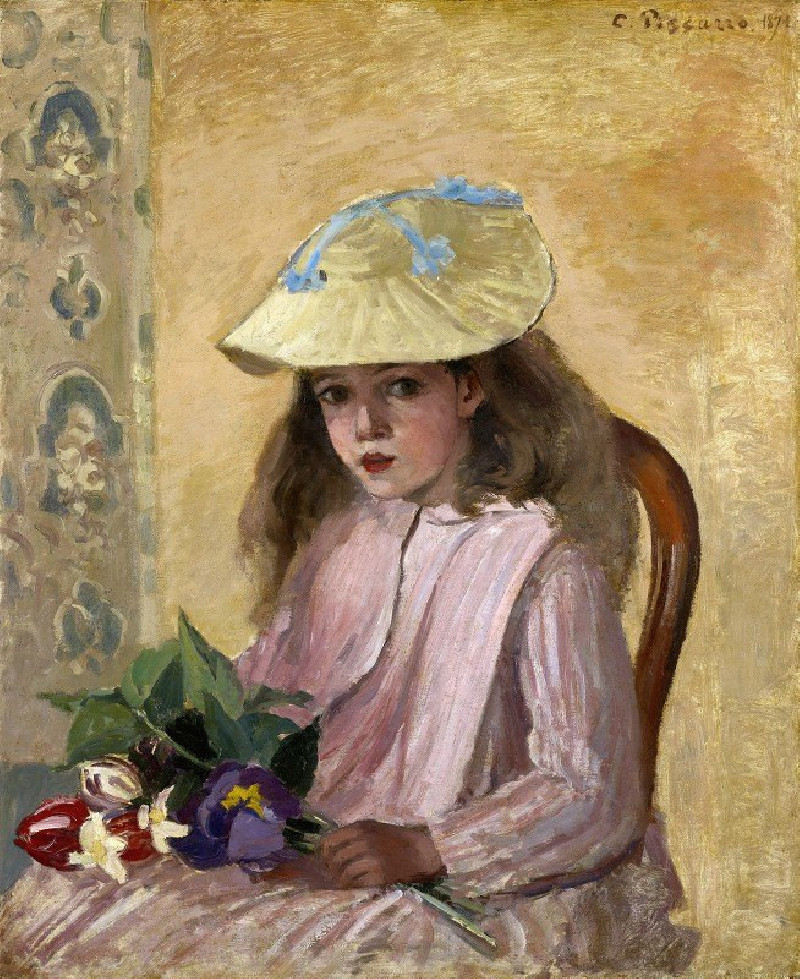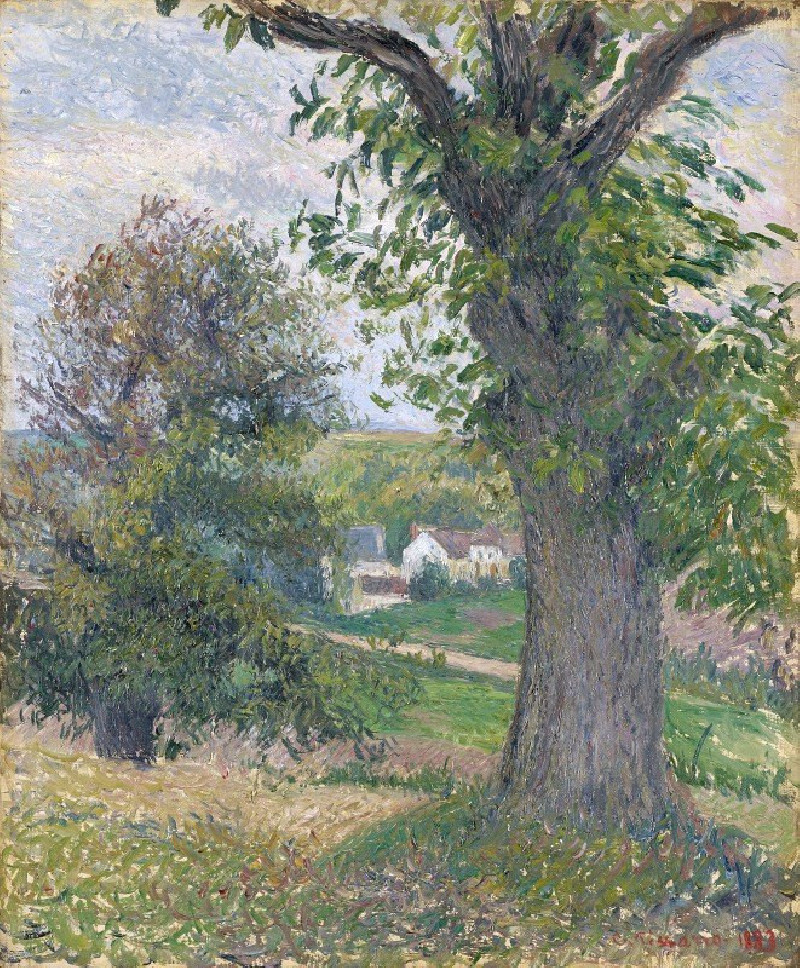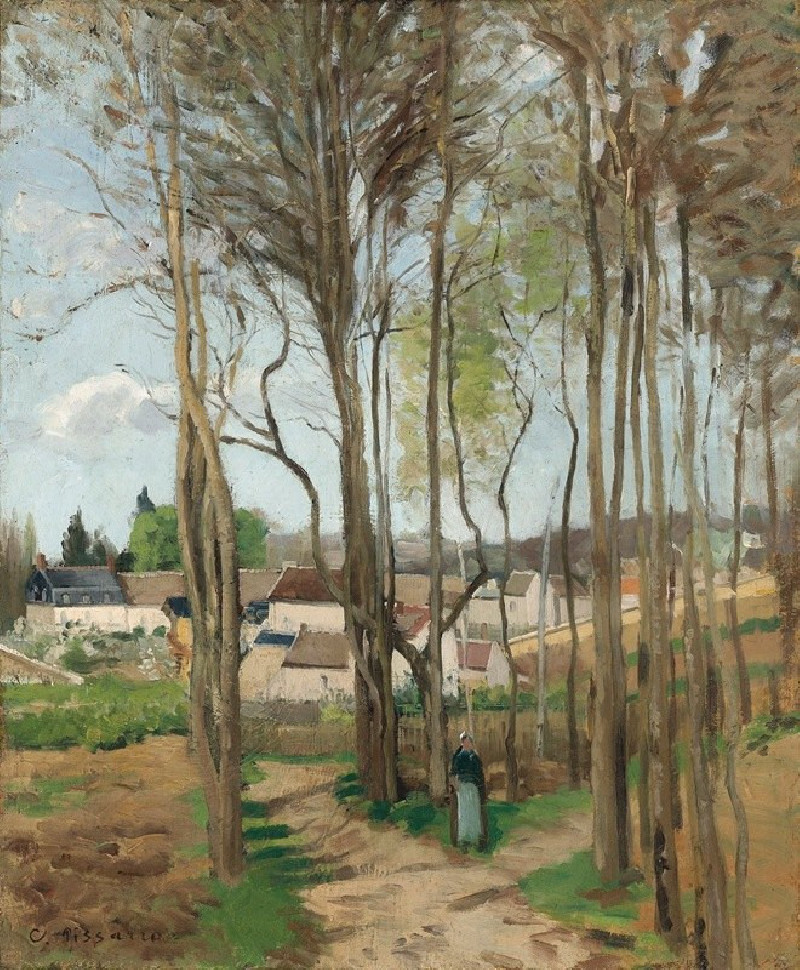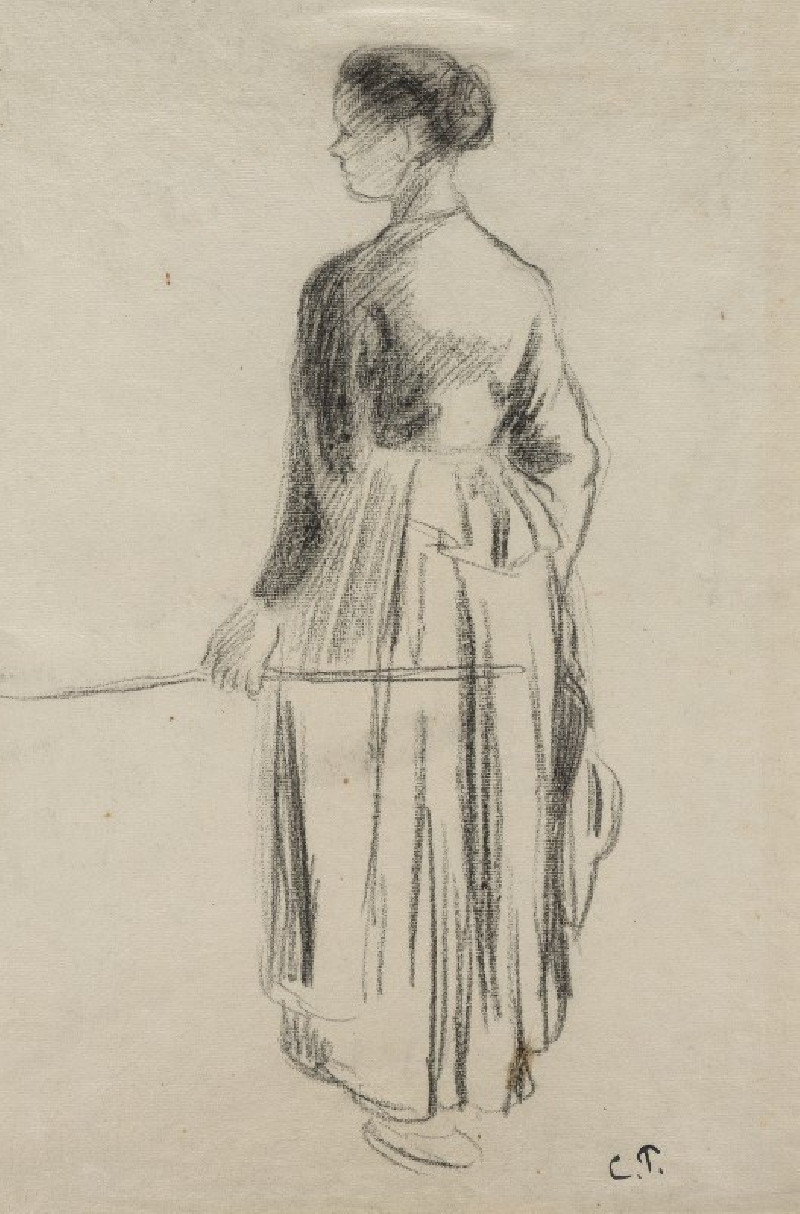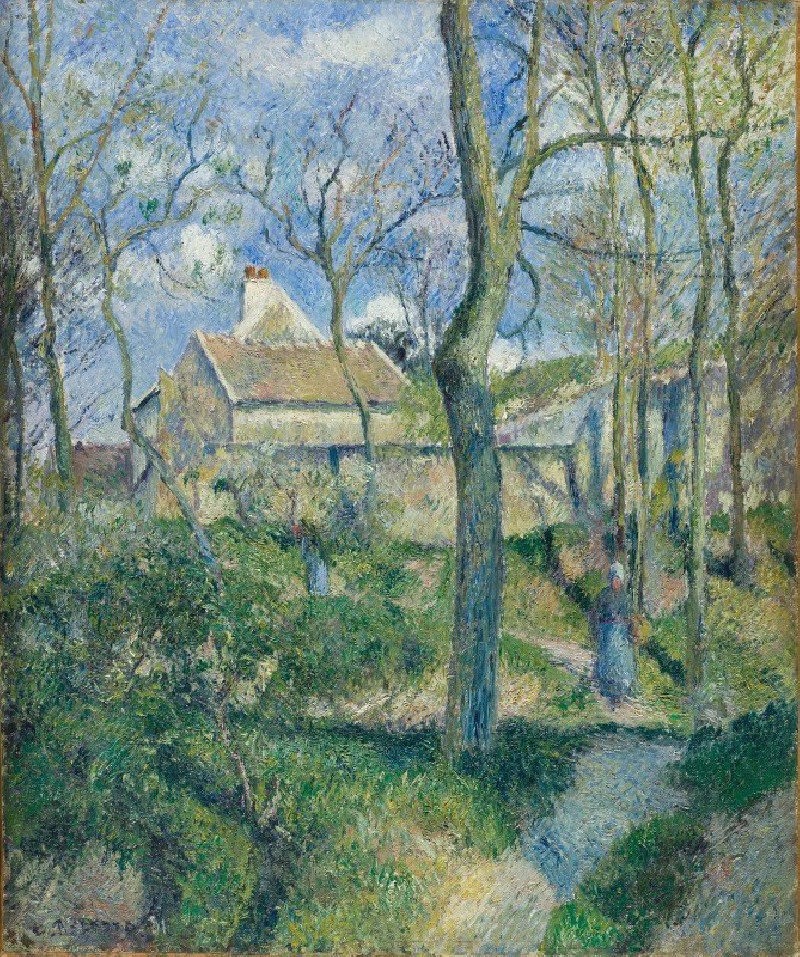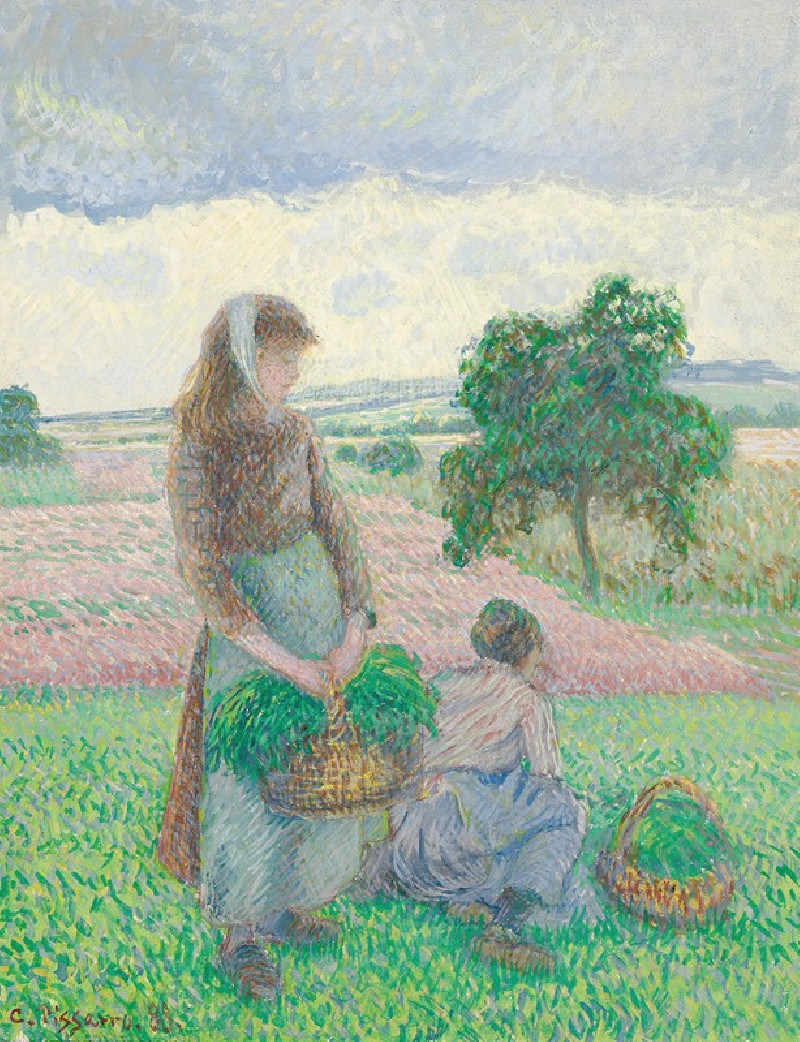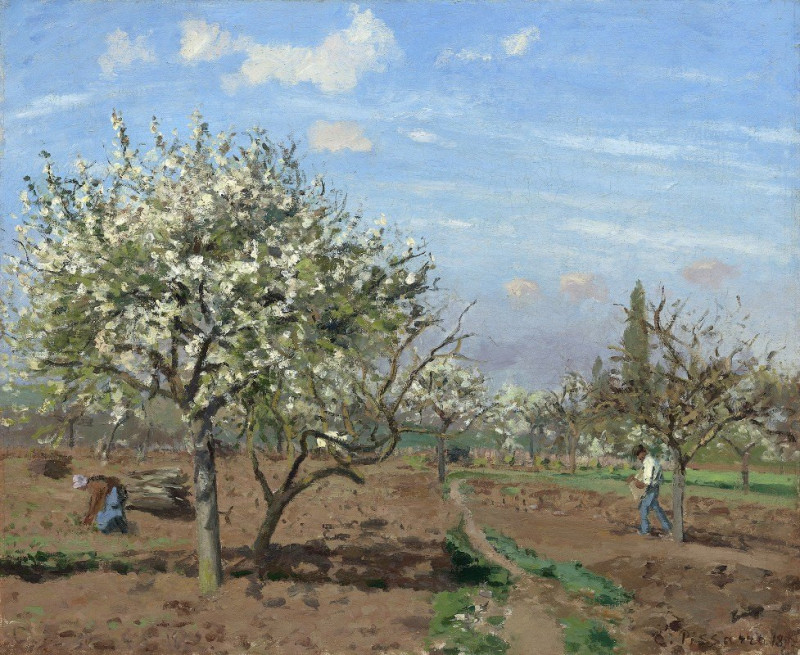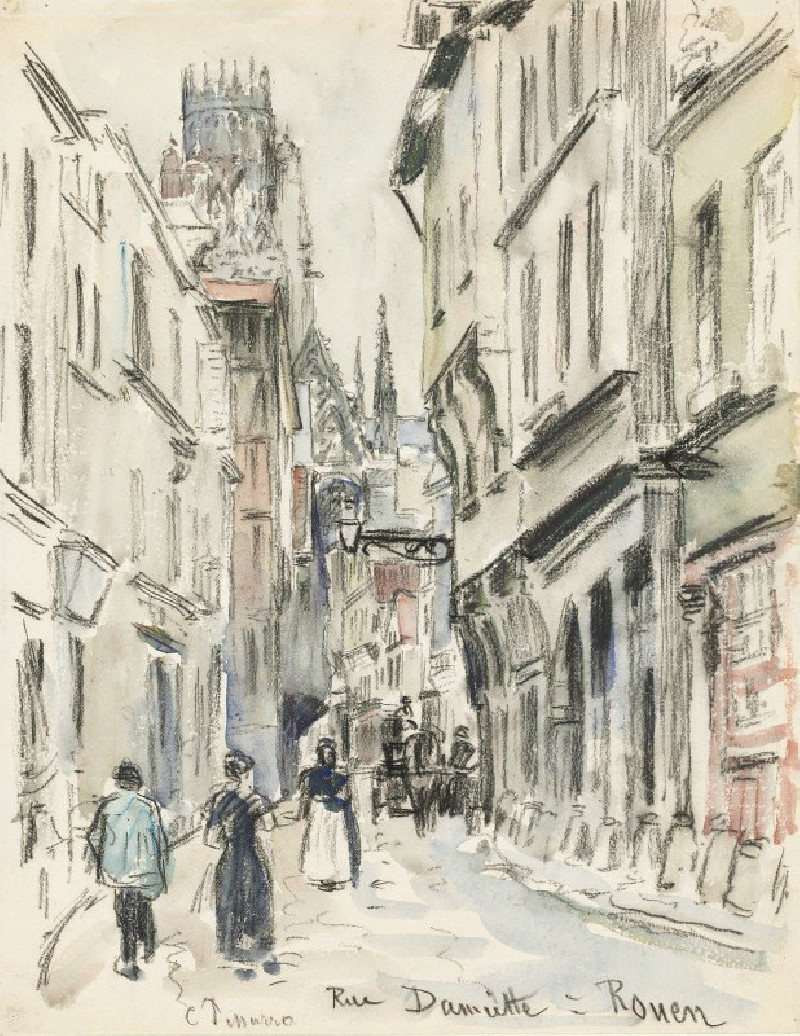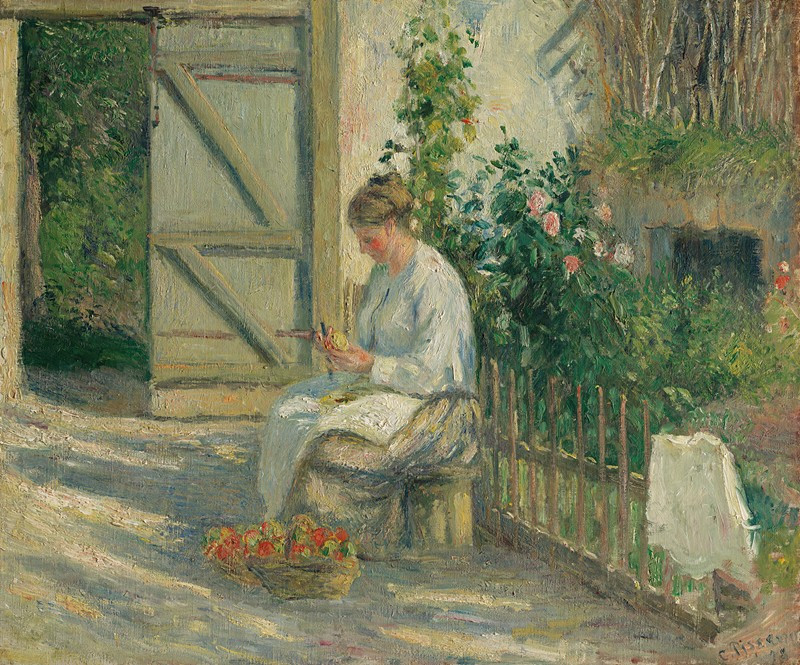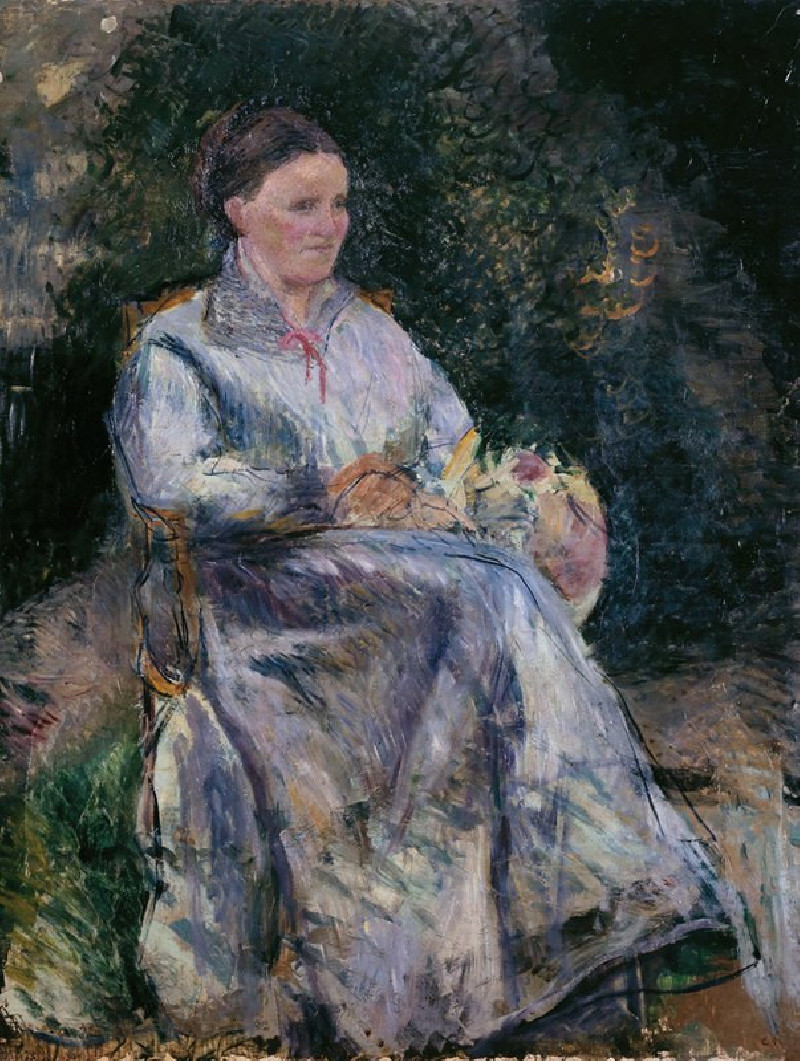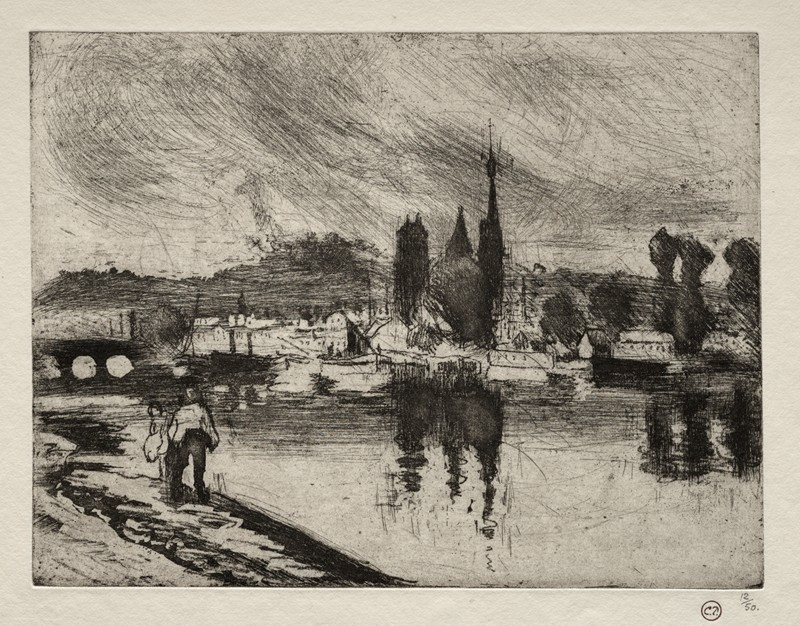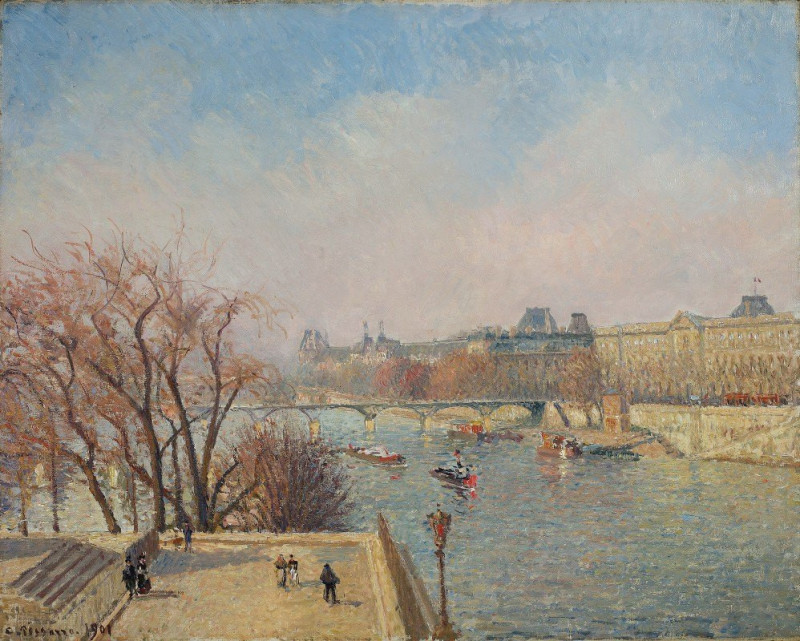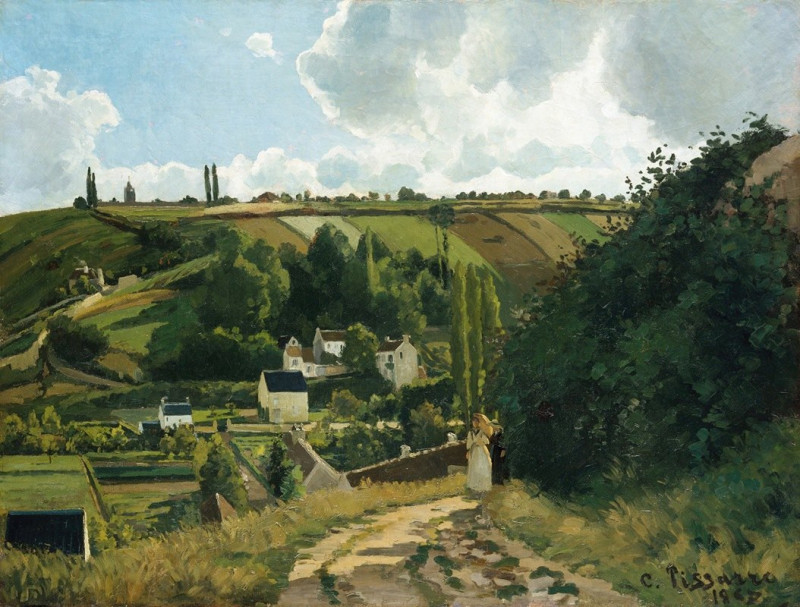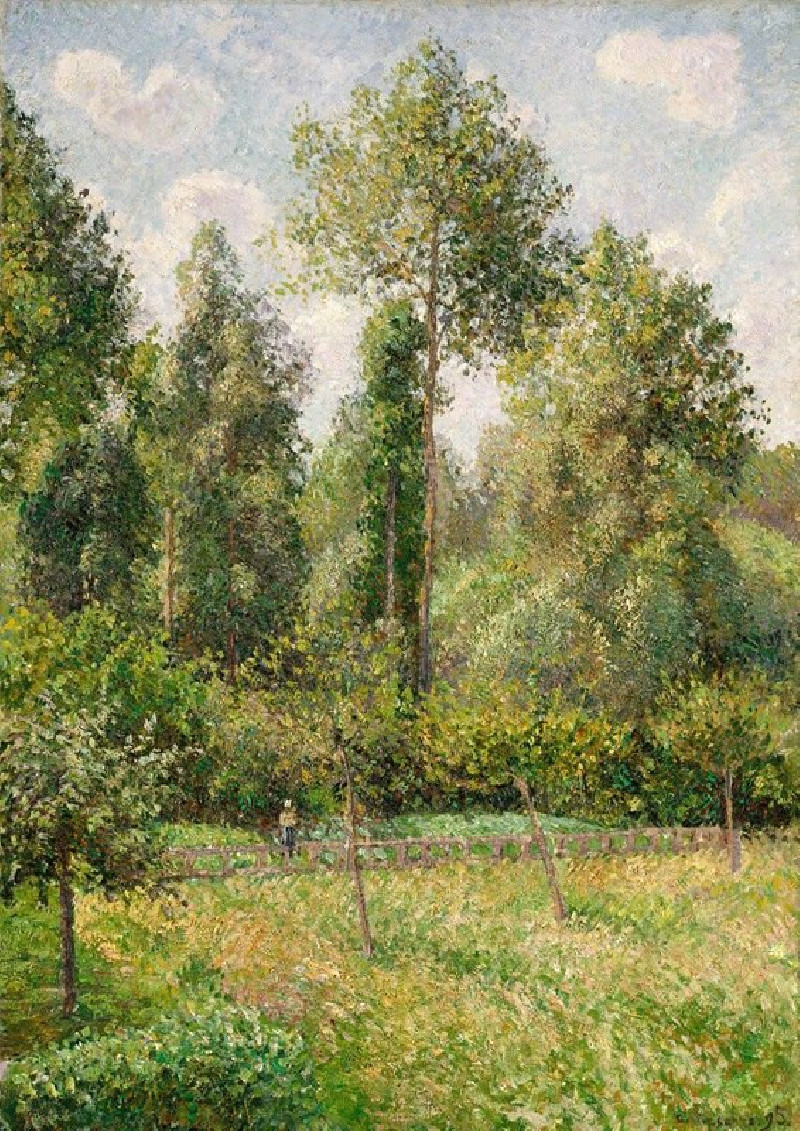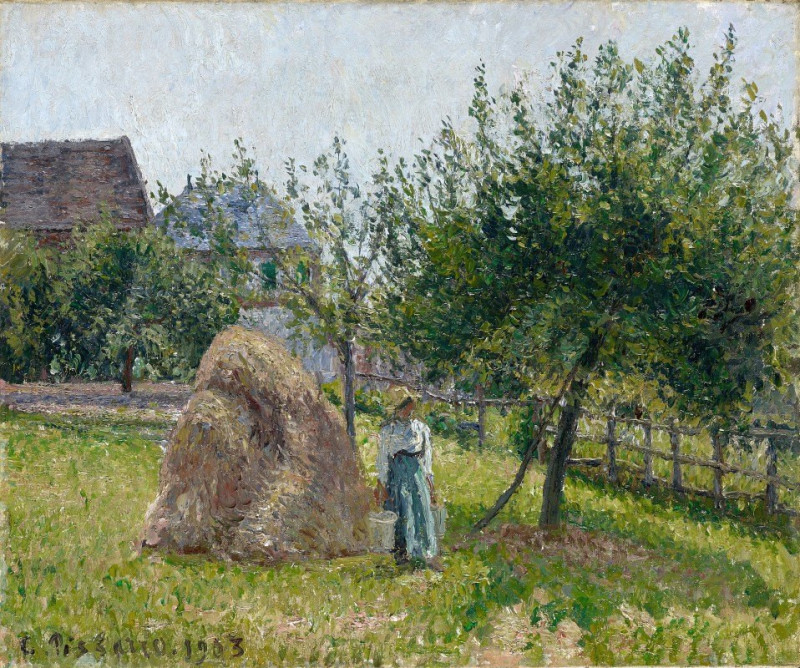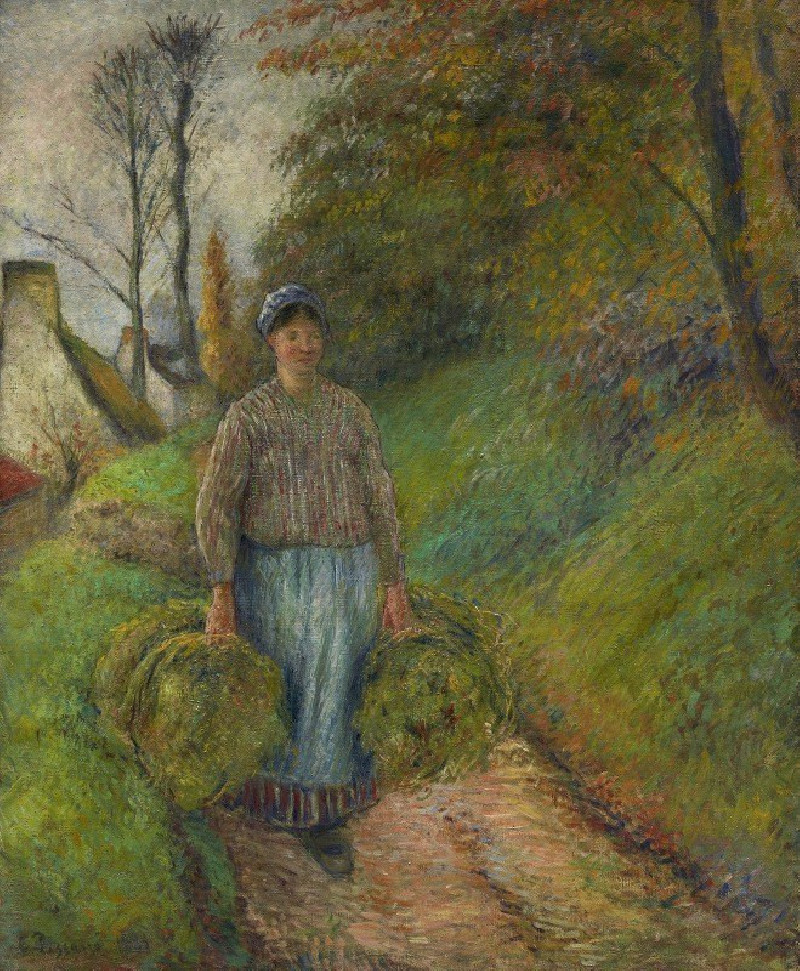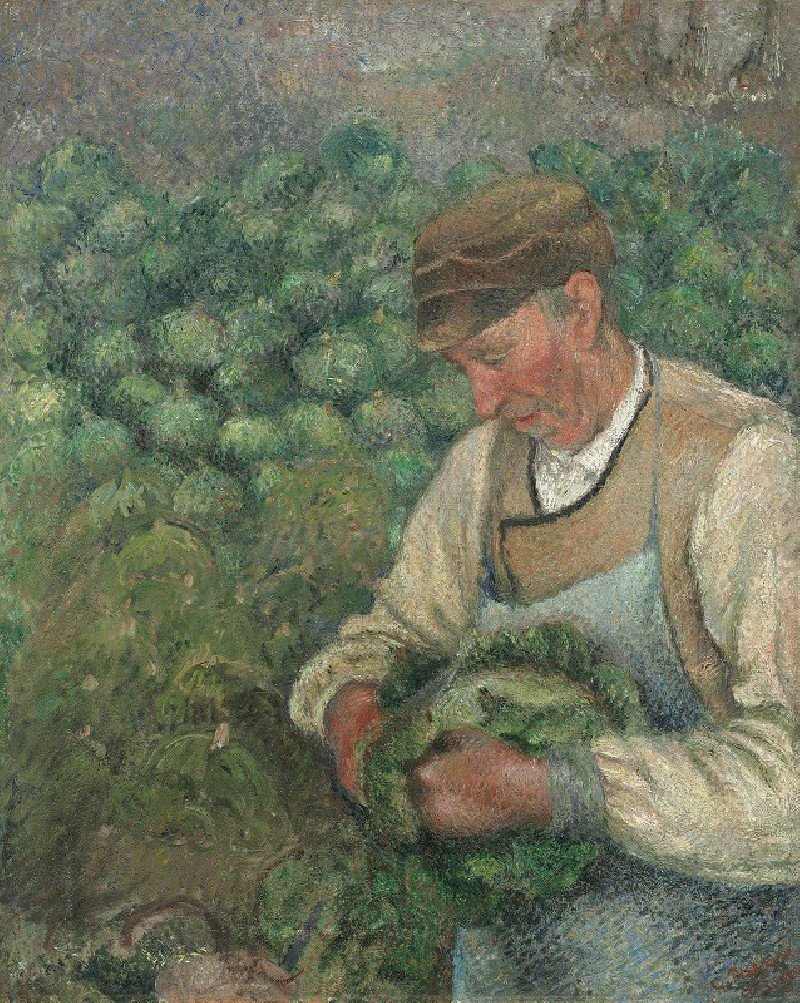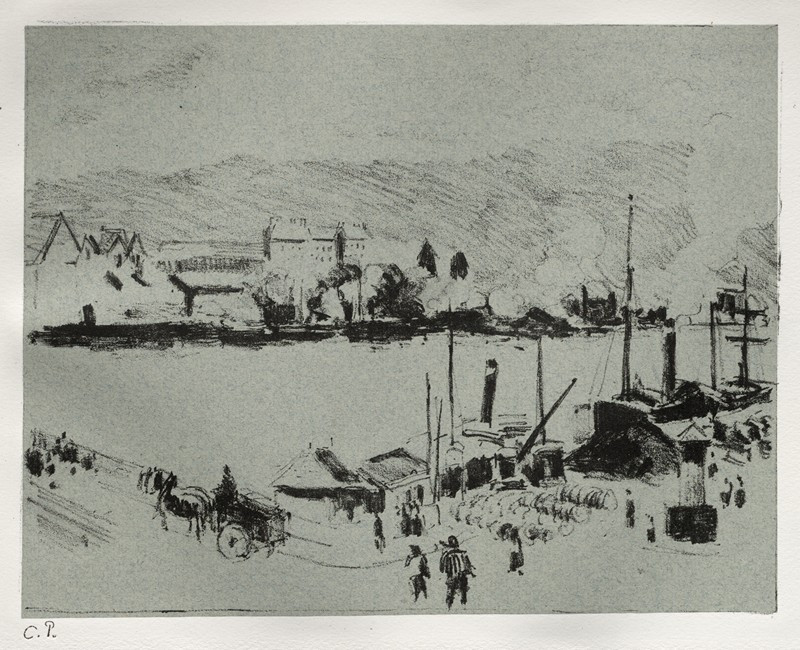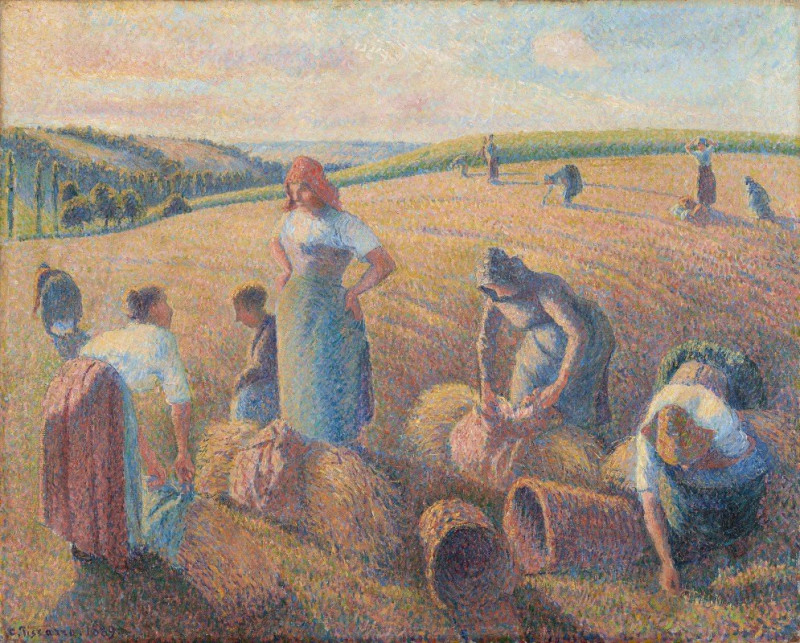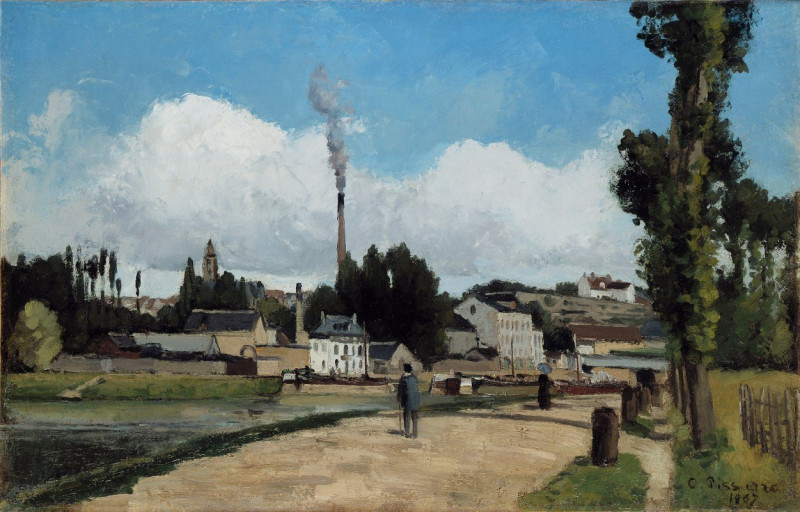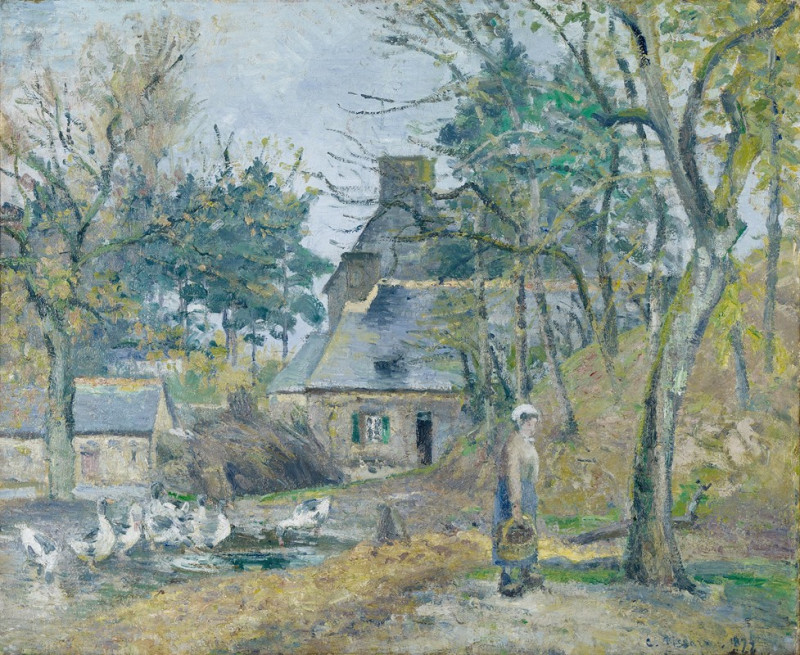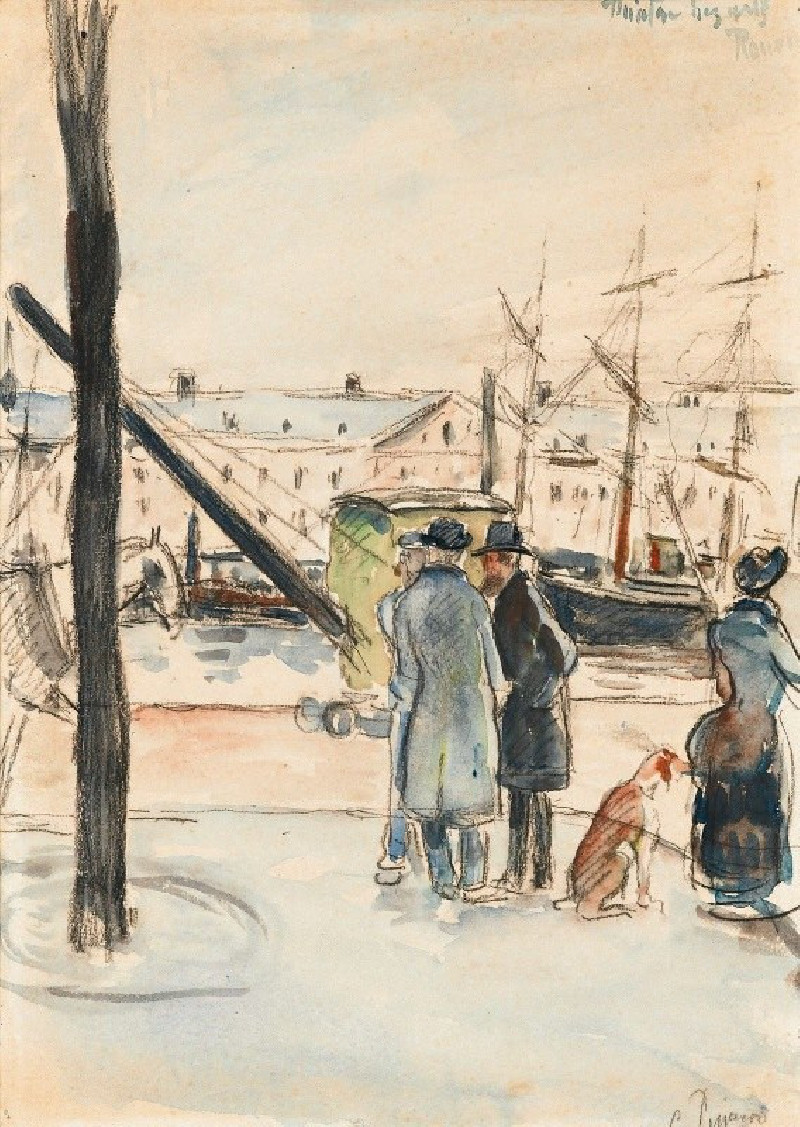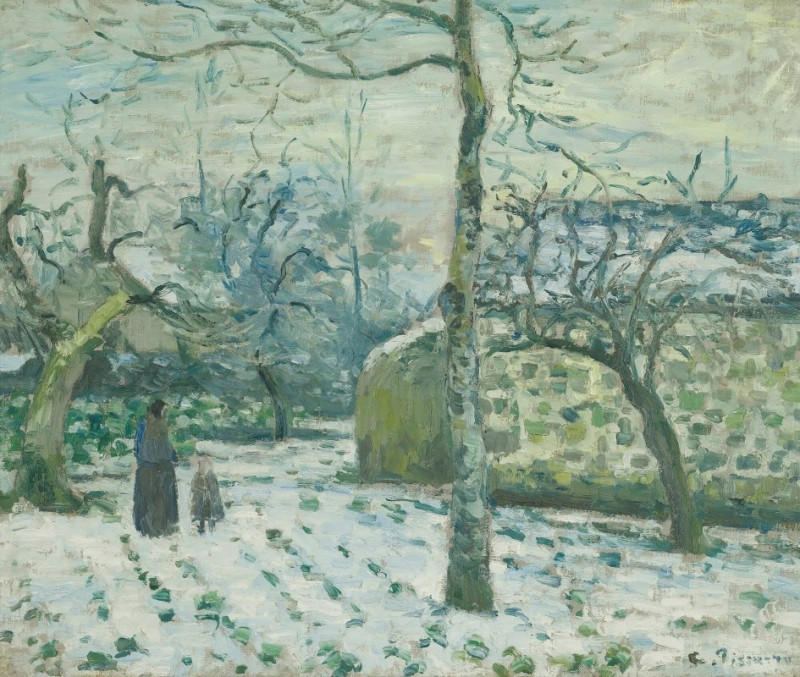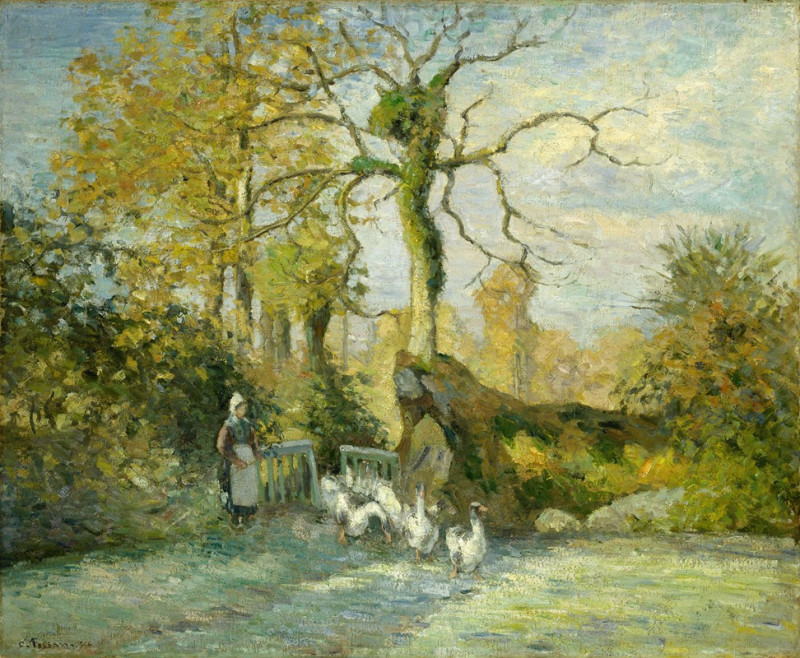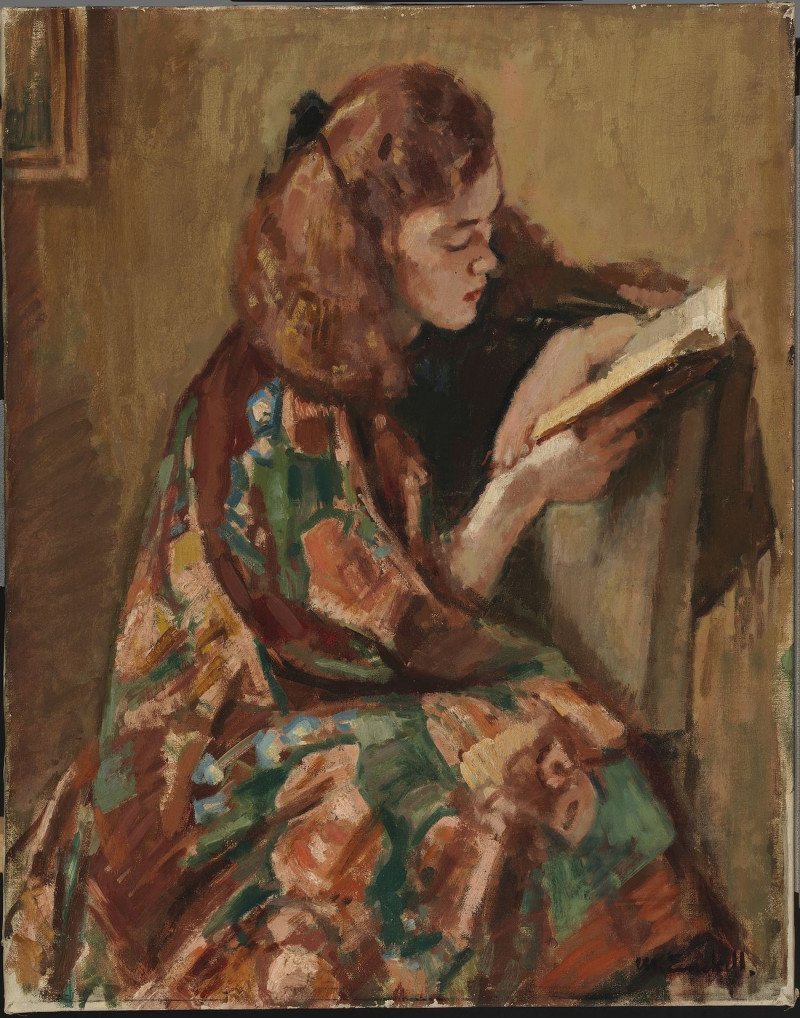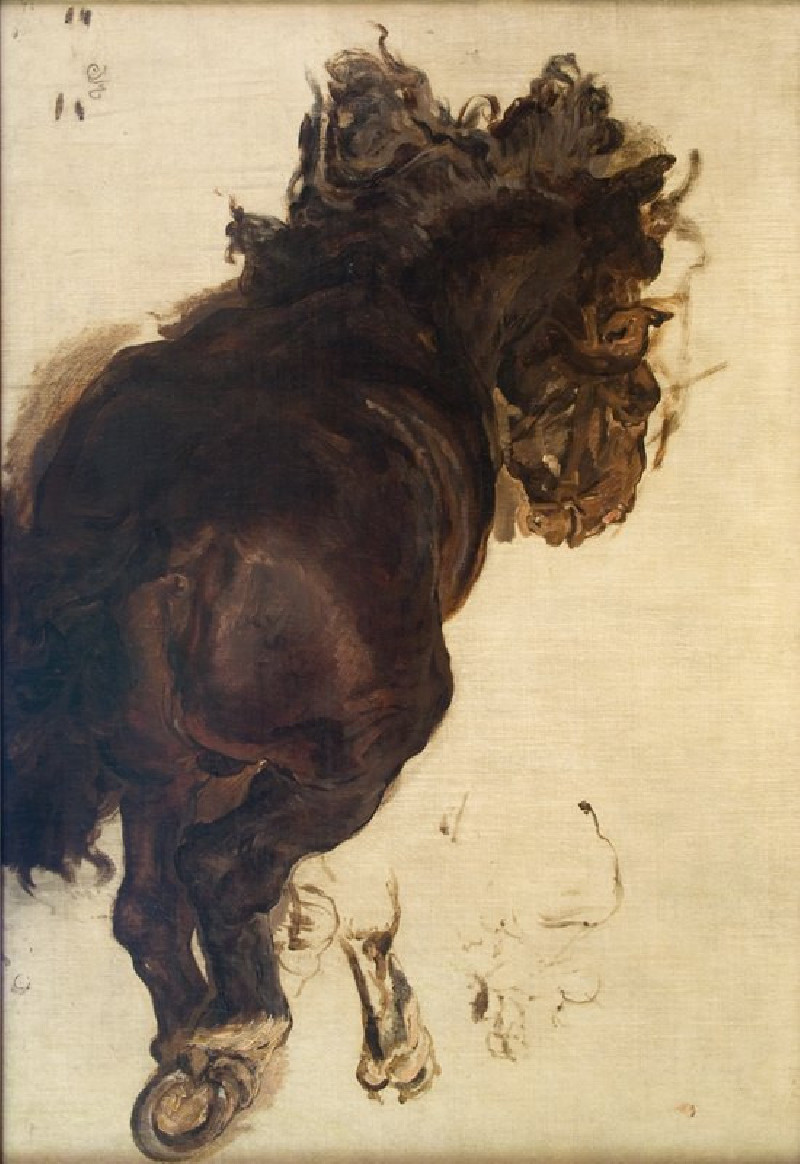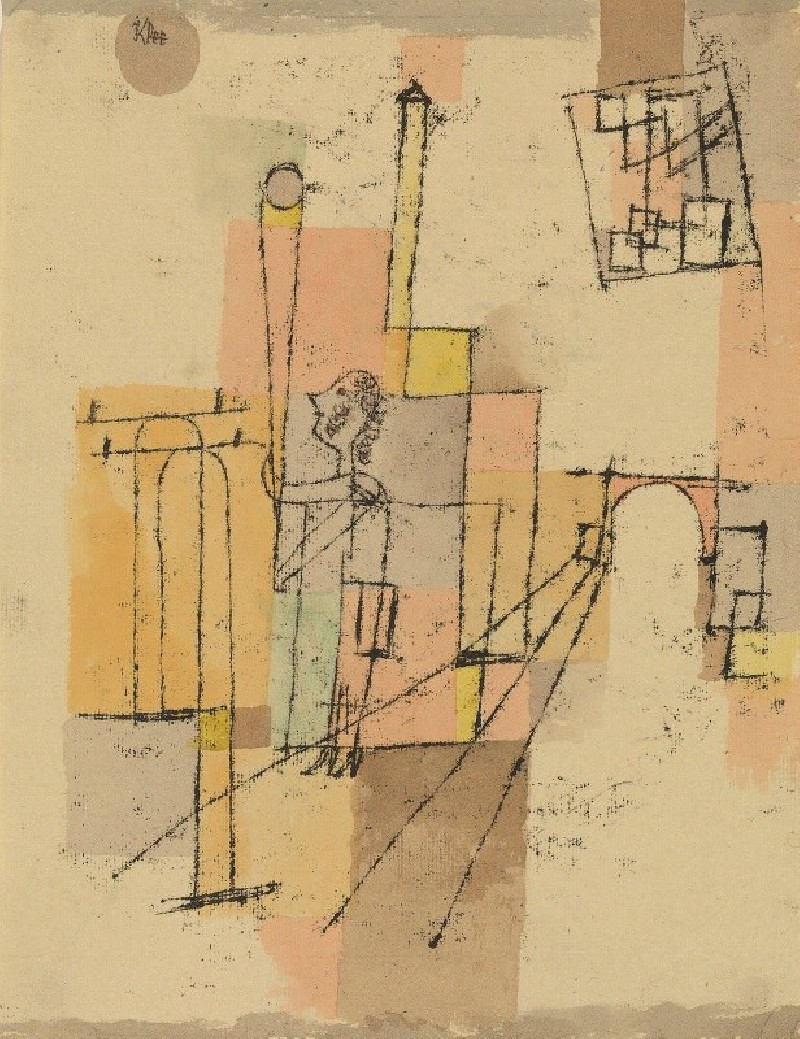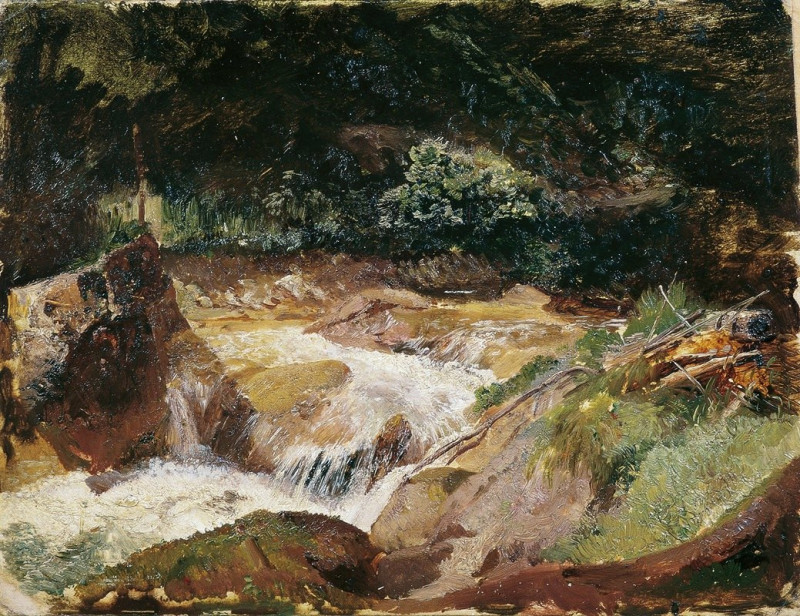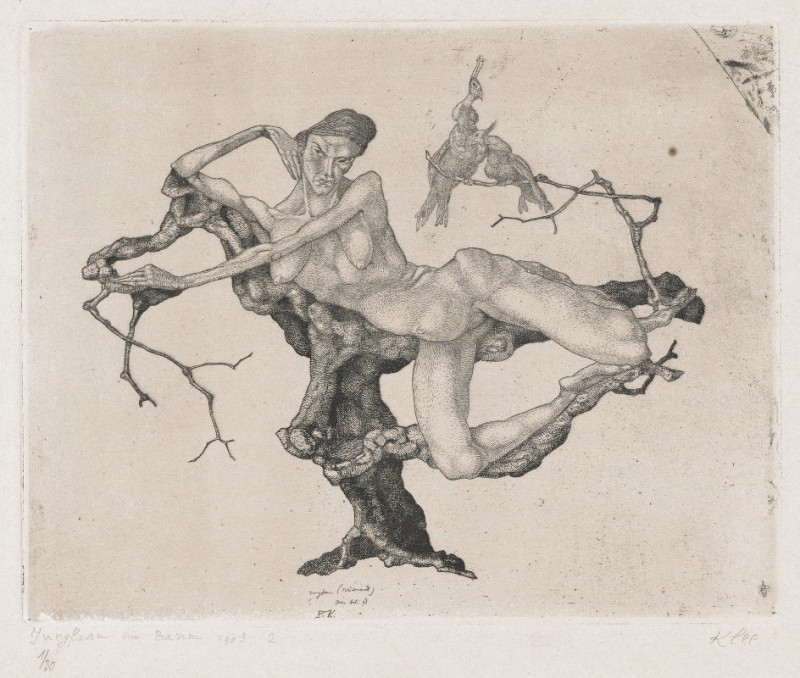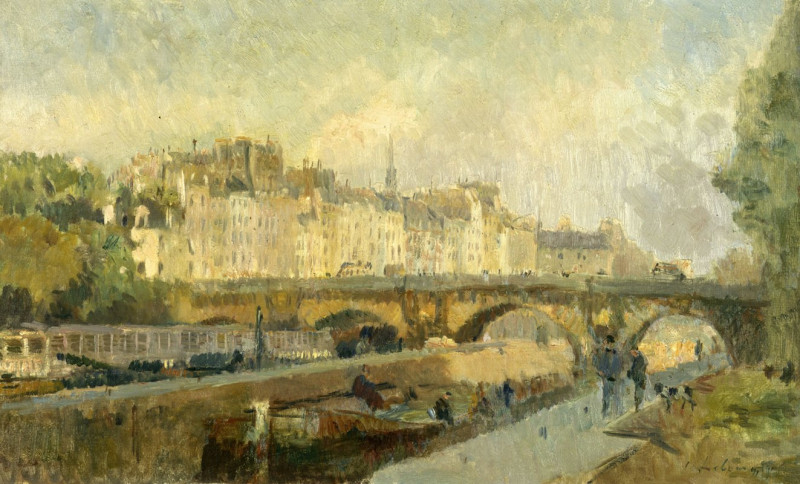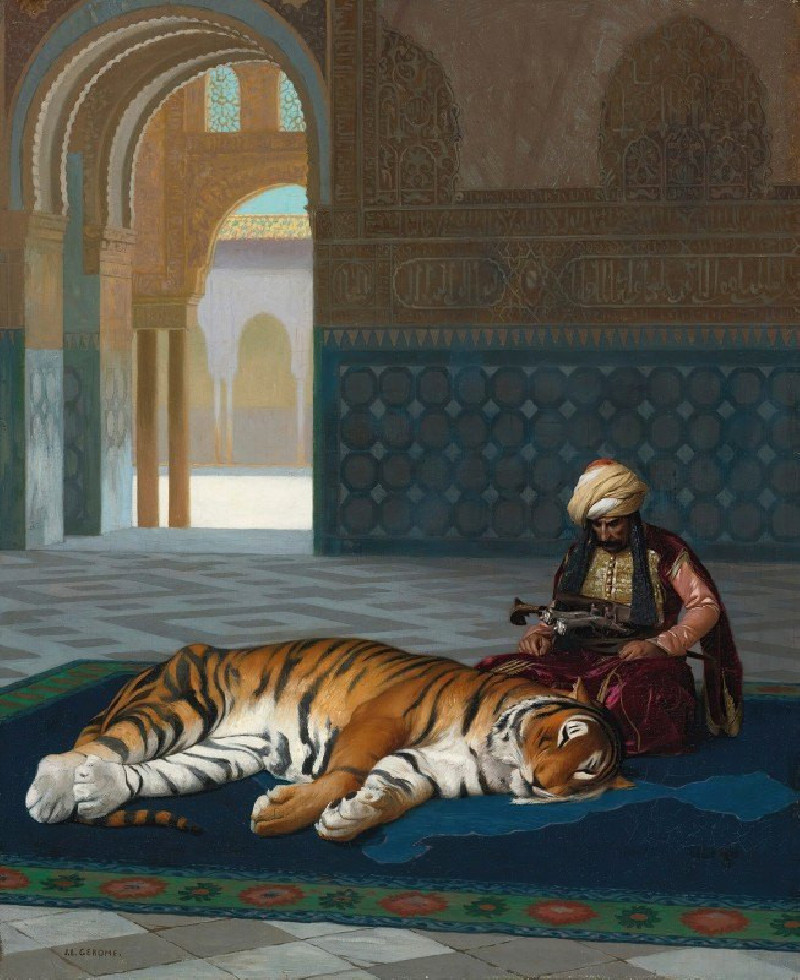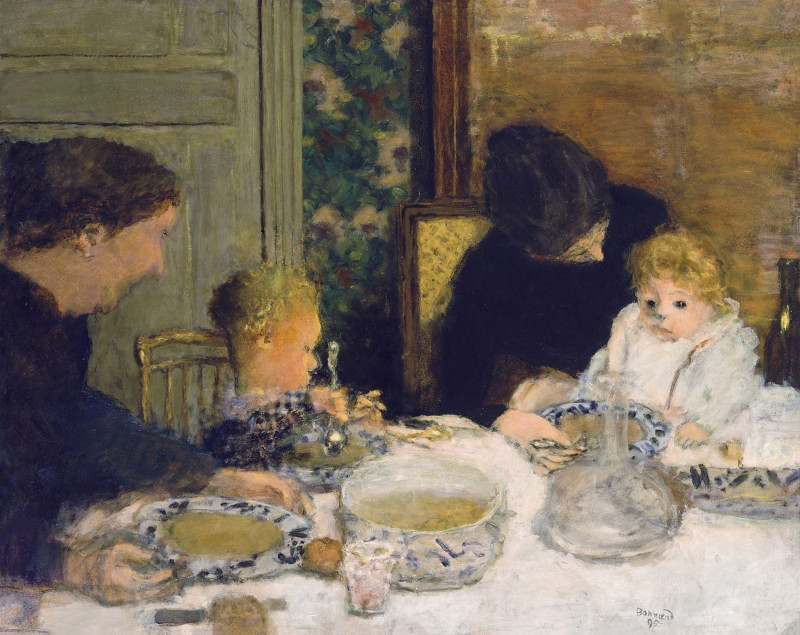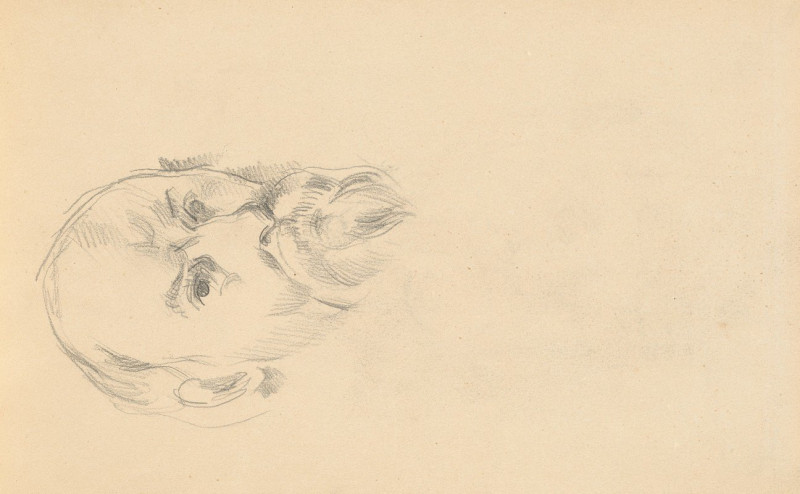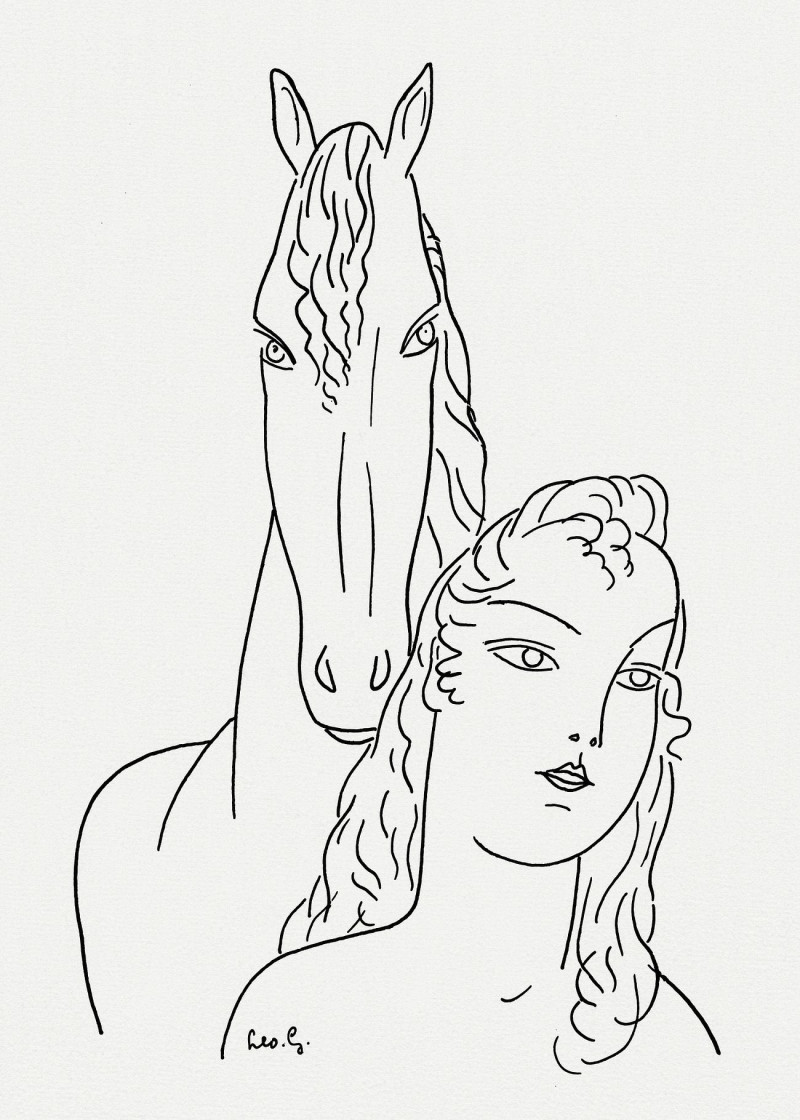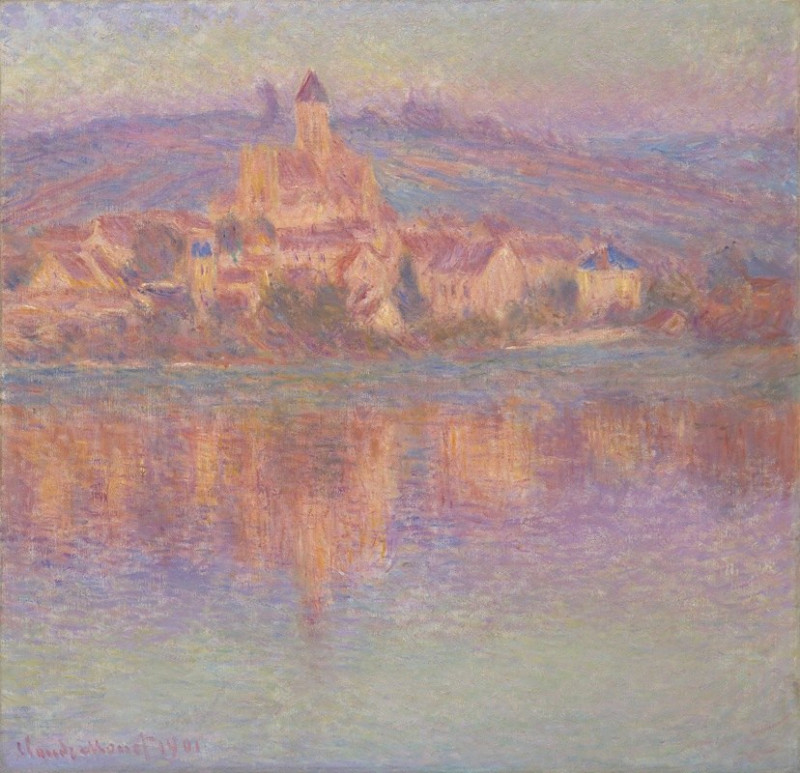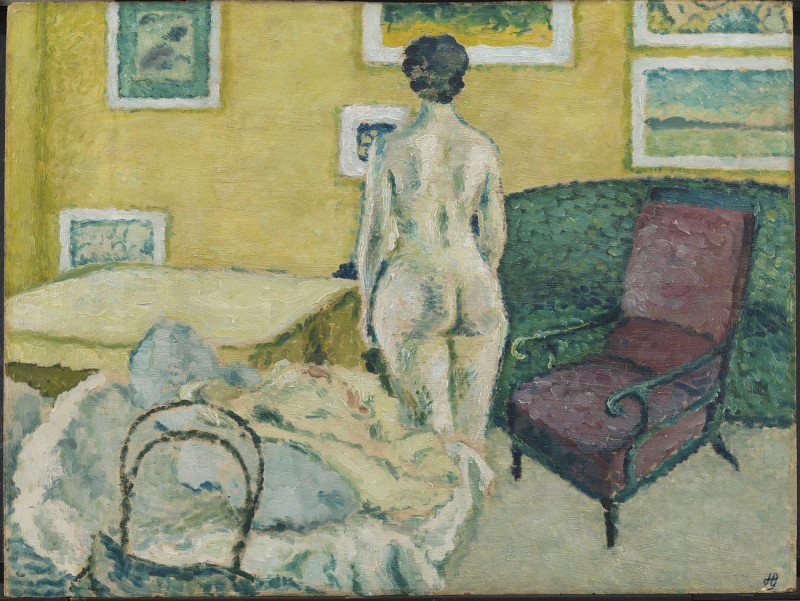Bridge at Caracas (1854)
Technique: Giclée quality print
Recommended by our customers
More about this artwork
"Bridge at Caracas," painted in 1854 by Camille Pissarro, depicts a serene and picturesque scene of everyday life in Caracas during the mid-19th century. This watercolor gives us a glimpse into Pissarro’s early artistic developments before he became one of the founding members of the French Impressionist movement.The painting showcases a rustic stone bridge arching gracefully over a small gully or stream, set against a backdrop of lush, undulating landscapes. A tall palm tree stands prominently on the left, directing the viewer's eye toward the figures crossing the bridge and those gathered beneath it. The naturalistic portrayal of the scene is highlighted by the soft, earthy tones and fluid brushstrokes that suggest the gentle movement of the landscape and the tranquil passage of time.In the foreground, a small group of figures is depicted in intimate conversation, adding a human element to the wild and natural setting. Their presence invites viewers to ponder the daily lives and interactions of those who lived in such a locale."Bridge at Caracas" not only captures the beauty of the Venezuelan landscape but also reflects Pissarro’s keen interest in depicting human figures within their environment, a theme that would continue to permeate his later works.
Delivery
Returns
Blessed are they who see beautiful things in humble places where other people see nothing. — Camille Pissarro
Camille Pissarro (1830-1903) was born on St.Thomas (now the US Virgin Islands) to a Portuguese father and a Dominican mother. He went to Paris to study art at Ecole des Beaux-Arts. He was an early pioneer of pointillism and neo-impressionism and later became a mentor of many famous impressionist painters including Cezanne, Manet, Renoir, and Gauguin. His paintings depicted rural and urban French landscapes and lifestyle. Many of his works politically captured images of peasants and laborers. Today, he is considered the father of impressionism.

